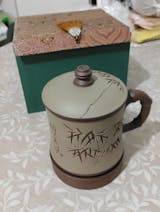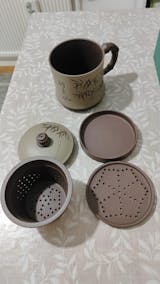Chinese Black Tea: A Millenia-Old Legacy in Every Sip
——A Tasting Guide & Cultural Journey
I. Chinese Black Tea: A Gift of History & Terroir
China is the birthplace of black tea, which originated in the Wuyi Mountains of Fujian during the late Ming Dynasty (17th century). Known for its rich flavor, aromatic complexity, and warm amber liquor, Chinese black tea has captivated the world. From the pine-smoked notes of Lapsang Souchong to the honeyed sweetness of Yunnan Dian Hong, every leaf carries the essence of China’s unique terroir and tea-making artistry.
Key Producing Regions & Their Treasures:
l Wuyi Mountains, Fujian: Lapsang Souchong (The world’s first black tea, smoked over pinewood, with a distinctive longan fruit aroma).
l Fengqing, Yunnan: Dian Hong (Made from large-leaf varietals, golden buds, and a bold honey-floral profile).
l Qimen, Anhui: Keemun Black Tea (The "Queen of Black Teas," famed for its floral "Qimen fragrance" reminiscent of roses and orchids).
l Yingde, Guangdong: Ying Hong No. 9 (A modern classic, robust and creamy with a malty sweetness).
II. Tasting Guide: A Symphony for the Senses
1. Observe the Leaves
l Dry Leaves: High-quality black tea should have tightly twisted strands (e.g., Keemun’s slender "Qimen Mao Feng"), with a glossy black-brown hue and golden tips (e.g., Yunnan Dian Hong).
l Liquor Color: Ranges from bright orange-red to deep ruby; aged black teas develop an amber tone.
2. Inhale the Aroma
l Hot Cup: Expect sweetness (honey, caramel), florals (Keemun’s orchid-rose notes), fruitiness (lychee, longan), or smokiness (traditional Lapsang Souchong).
l Cold Cup: Premium teas leave a lingering fragrance—honey, orchid, or ripe fruit—after cooling.
3. Savor the Taste
l First Sip: Dian Hong is bold and malty; Ying Hong is brisk and creamy; Keemun is velvety and layered.
l Aftertaste: Superior black teas finish smooth, without astringency, with a sweet, lingering "hui gan" (returning sweetness).
4. Examine the Spent Leaves
Post-brewing, the leaves should be soft, coppery-red, and evenly unfurled.
III. Brewing Mastery: Unlocking the Tea’s Soul
l Water Temperature: 85–95°C (lower for delicate buds like Jin Jun Mei, boiling for robust Yunnan teas).
l Teaware: Porcelain gaiwan (enhances aroma) or Yixing clay teapot (rounds out flavor).
l Dosage: 5g tea per 150ml water, with quick steeps (5–10s for first 3 infusions, gradually increasing).
l Pairings: Best enjoyed neat, but also pairs beautifully with milk (Ying Hong), lemon, or honey.
IV. Black Tea & Culture: From East to West
Chinese black tea is more than a drink—it’s a cultural ambassador:
l "Tea Horse Road": In the 17th century, Lapsang Souchong traveled to Europe, becoming a British aristocracy favorite.
l Gongfu Tea Ritual: Fujian and Anhui teas are often brewed Gongfu-style, emphasizing precision and appreciation.
l Wellness Tradition: Black tea’s warm nature aids digestion, while its theaflavins and thearubigins offer antioxidants.
V. Final Note: A Cup of China’s Heart
From Yunnan’s energizing maltiness to Keemun’s floral elegance and Wuyi’s smoky depth, Chinese black tea weaves a tale of mountains and craftsmanship. Sip slowly, and let this "red gold" steep your moments in warmth.
✨ Pro Tip: Store in an airtight, dark container at room temperature (aged black teas develop richer notes over time).

![Wuyi [Jin Jun Mei] Flora Aroma Black Tea Canned Gift Set 250/500g - YIQIN TEA HOUSE | yiqinteahouse.com | black tea, jin jun mei, tea](http://yiqinteahouse.com/cdn/shop/products/wuyi-jin-jun-mei-flora-aroma-canned-gift-set-250500g-yiqin-tea-house-yiqinteahouse-com-1.png?v=1723259958&width=533)

![Fujian Premium [Osmanthus Jin Jun Mei] Srong Flora Aroma Black Tea 260/520g - YIQIN TEA HOUSE | yiqinteahouse.com | black tea, jin jun mei, tea](http://yiqinteahouse.com/cdn/shop/files/aa008f6c00684555fd30c0fa5bac2fed.jpg?v=1735815705&width=533)
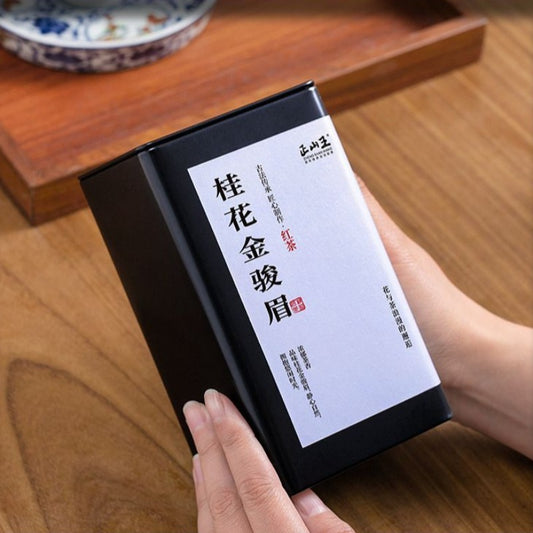
![Wuyi [Lapsang Souchong] Black Tea Canned Gift Set 250/500g - YIQIN TEA HOUSE | yiqinteahouse.com | black tea, lapsang souchong, tea](http://yiqinteahouse.com/cdn/shop/products/wuyi-lapsang-souchong-black-tea-canned-gift-set-250500g-yiqin-tea-house-yiqinteahouse-com-1.png?v=1723259994&width=533)
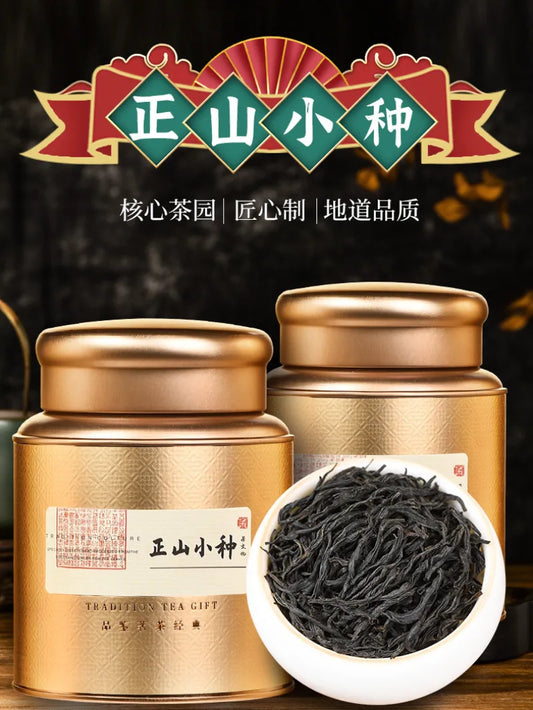
![Wuyi Yan Cha Premium [Jin Jun Mei] Elegant Gift Box Set 240g - YIQIN TEA HOUSE | yiqinteahouse.com | black tea, gift, jin jun mei, tea](http://yiqinteahouse.com/cdn/shop/files/wuyi-yan-cha-premium-jin-jun-mei-elegant-gift-box-set-240g-yiqin-tea-house-yiqinteahouse-com-1.jpg?v=1723262875&width=533)
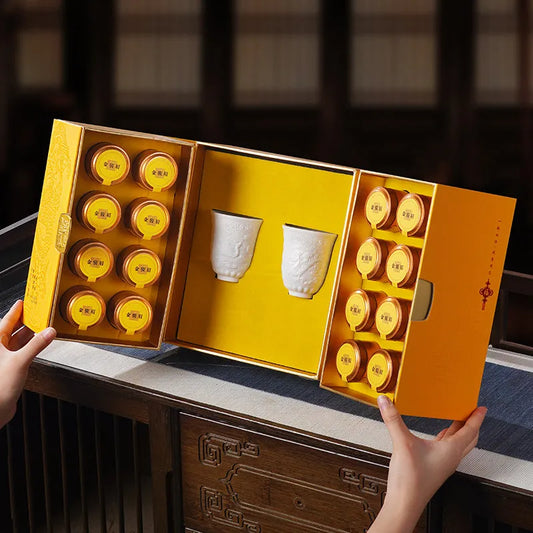
![Wuyi [Jin Jun Mei] Ceramic Jar Gift Box Set 300g - YIQIN TEA HOUSE | yiqinteahouse.com | black tea, gift, jin jun mei, tea](http://yiqinteahouse.com/cdn/shop/products/wuyi-jin-jun-mei-ceramic-jar-gift-box-set-300g-yiqin-tea-house-yiqinteahouse-com-1.jpg?v=1723255268&width=533)
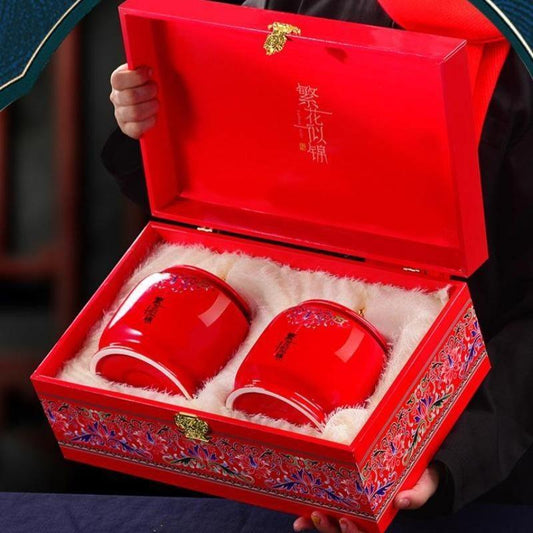
![Premium Yunnan Fengqing [Dianhong] Golden Bud Black Tea Canned Gift Set 250/500g - YIQIN TEA HOUSE | yiqinteahouse.com | black tea, dianhong, tea](http://yiqinteahouse.com/cdn/shop/files/69df1ce095e84cbc663fcfcc2de8597f.jpg?v=1735969193&width=533)
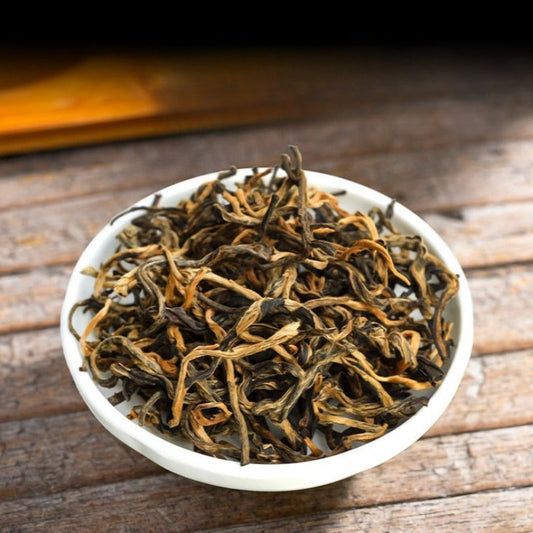
![Premium Anhui [Keemun Black Tea] Canned Gift Set 250/500g - YIQIN TEA HOUSE | yiqinteahouse.com | black tea, keemun black tea, tea](http://yiqinteahouse.com/cdn/shop/files/0b3a1c311a4718d81052993e0d611f66.jpg?v=1735969273&width=533)
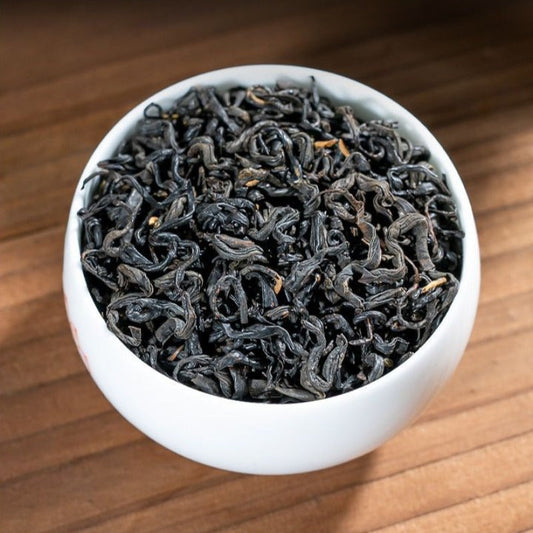
![Wuyi Yan Cha [Narcissus / Rougui / Qilan / Da Hong Pao | Jin Jun Mei / Lapsang Souchong] Small Cannd Gift Box Set 250g - YIQIN TEA HOUSE | yiqinteahouse.com | black tea, da hong pao, gift, jin jun mei, laysang souchong, oolong tea, tea, wuri rougui, wuyi narcissus, wuyi qilan](http://yiqinteahouse.com/cdn/shop/files/wuyi-yan-cha-narcissus-rougui-qilan-da-hong-pao-or-jin-jun-mei-lapsang-souchong-small-cannd-gift-box-set-250g-yiqin-tea-house-yiqinteahouse-com-1.jpg?v=1723262973&width=533)
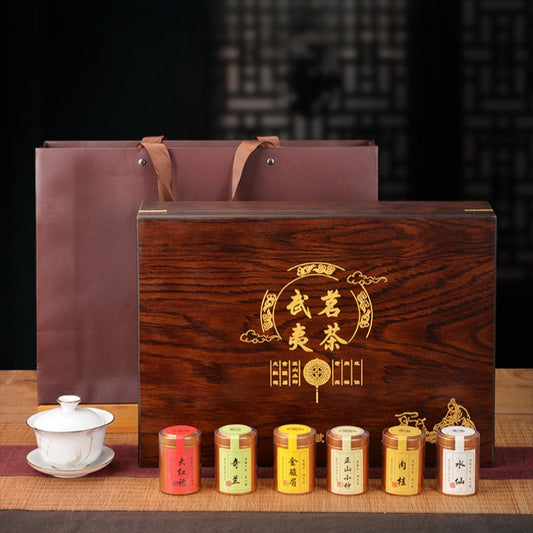
![Premium Wuyi [Lapsang Souchong] Black Tea 500g - YIQIN TEA HOUSE | yiqinteahouse.com | black tea, lapsang souchong, tea](http://yiqinteahouse.com/cdn/shop/products/wuyi-lapsang-souchong-black-tea-500g-yiqin-tea-house-yiqinteahouse-com-1.jpg?v=1723255237&width=533)


